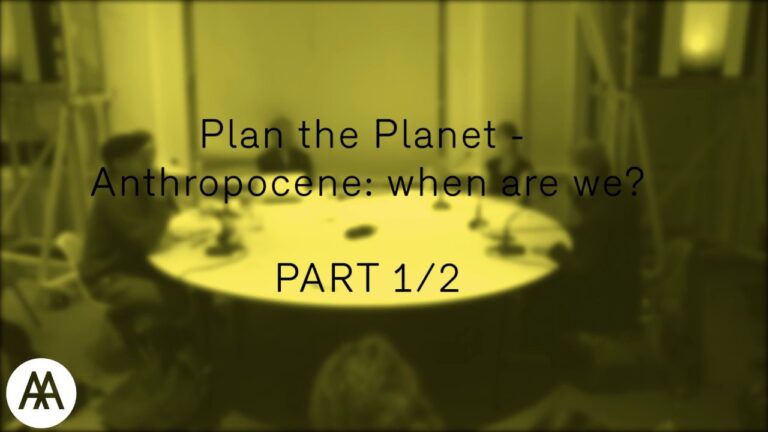
PART 1:
Introduction: 00:00 – 8:26
Talk begins: 8:26 – 1:18:35
The formalisation of a new proposed geological epoch, shaped by the intensification of human activity, is a complex scientific venture that reverberates across multiple disciplines, ways of organising life, procedures to structure policies. Its principal element is the compilation and articulation of a body of work and scientific evidence of the material aspects of social activity. The consequences are vast: rearticualting contemporaneity as a deep time, redistributing agency, and reorganising the distinction between nature and culture.
Hilary Koob-Sassen makes high-quality, non-destructive scripting errors for planetary fiduciaries.
Charlie Kronick is Senior Climate Adviser at Greenpeace UK. He has worked in the fields of environment and development as an activist, campaigner, thinker and writer for more than 20 years. He has focused for most of the last decade on issues related to energy and climate change, and recently on the risks to capital markets from investment in high carbon infrastructure.
Jan Zalasiewicz is Professor of Palaeobiology at the University of Leicester and Chair of the Anthropocene Working Group of the International Commission on Stratigraphy. A field geologist, paleontologist, and stratigrapher, he teaches and publishes on geology and earth history, in particular on fossil ecosystems and environments that span over half a billion years of geological time.
Catherine Russell is a teaching fellow in Sedimentology at the School of Geography, Geology and the Environment at the University of Leicester. Her research is in fluvial sedimentology; technical expertise in the development of innovative multi-disciplinary approaches (geology, geomorphology, and remote sensing), for analysis of the heterogeneity and internal architecture of meandering fluvial systems.
source